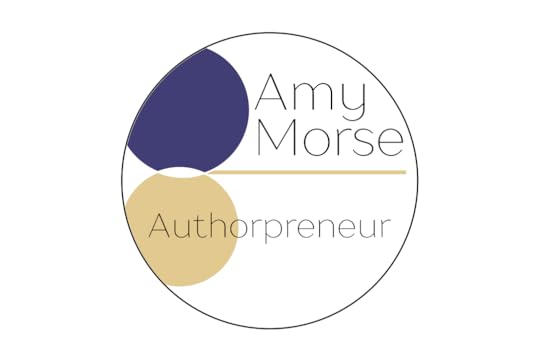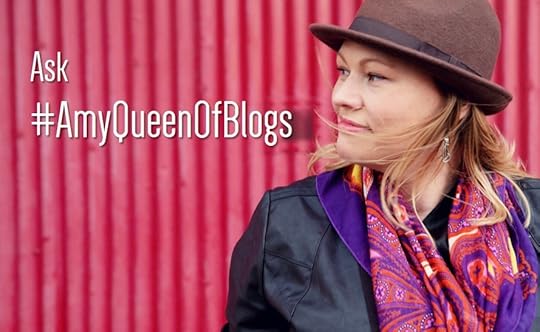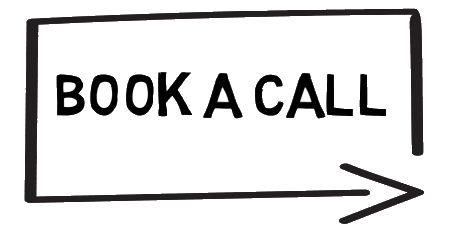Amy C. Fitzjohn's Blog, page 20
January 10, 2019
Is Your Business Due for a Facelift?
When should you consider a facelift for your business?
Our businesses naturally evolve, and we grow as individuals in skill, knowledge and experience. But are we demonstrating that to everyone else?
At some point, you must concede that the messages you send are inconsistent with what you’re really doing.
Perhaps your customer base has changed?
Perhaps you serve them in a different way?
Or perhaps your premises or your website are just looking a bit shabby and out of date?
I was invited to the reopening of – what had been a rather tired and tatty bar in Clifton – The Mall, last week.
An Invitation
It’s amazing what a lick of paint and a rearrange can do for the atmosphere of a place!
With chunky wooden tables, smart leather seating and white walls it’s come right up to date.
Just a short walk from the iconic suspension bridge, this is one of the few bars in this labyrinthine part of town that benefits from a garden, and happily, the open event was on a sunny evening.
Surrounded by bloggers, Instagrammers and flashbulbs, we found a comfortable spot on the terrace to enjoy a Bulldog gin.
Who know you could have this many garnishes with gin…
[image error] Talking through the way different garnishes bring out different flavour notes in the gin was our friendly mixologist…
There were canapes galore – a selection of miniatures from the new menu including delicious crab bites (I thought I didn’t like crab until I tried these), asparagus, goats cheese and sun-dried tomatoes and cured meats.
Discovering New in the Old
The Mall could certainly be another contender for me as a place to meet clients and settle down to some work.
I’ll add it to the list of places I reviewed in a previous post for favourite writing haunts in Bristol.
Check it out here: https://www.themallpubbristol.co.uk/
And a fellow blogger has reviewed it here: The Blonde Blog
My Own Branding Journey
In my own business, I started with a logo and one set of branding that reflected what I was doing when I first started out in 2015.
I was offering more general business support and quickly realised that I was trying to do too much for too many people and was too detached from my true passion: writing and stories.
It wasn’t reflecting the real story of my business.
The logo had to go – using my name and a written logo worked much better with my new, high impact visuals.
My colour pallet changed to reflect the predominant colours in the pictures.
I went through a facelift in 2016 and the difference has been phenomenal, thanks to the styling of Gosia Scarrott of GS Styling and visual branding coaching and images from Lidia at Visuable.
I feel like the protagonist at the centre of my story.
A 2019 Update
An Flash Of Inspiration
In spring of 2018, during one of my walks arond the gorgeous Bristol harbour (my favourite place in the city), I was contemplating what my business was really all about.
A phrase popped into my head ‘Learn To Love Your Words’.
This started a chain reaction of inspiration.
I bought the domain and changed my branding subtly to reflect the new shift…

Five Things that Changed After my Business Facelift:
1) I have a clearer idea of what I actually do and who I do it for
2) I have a set of gorgeous images that I can now use widely
3) Strangers tell me they feel like they know me because of my images, they can see my personality shining from the pictures
4) I think about how I dress – mindful of what suits my body shape and personality
5) I’m proud of my website and business image. And for the first time in years, I’m comfortable having my picture taken!
Join me on my mission to banish bad business writing and tell your story well in your own words.
Save
Save
Save
Save
For instant updates when I publish a new blog post, Follow me on Bloglovin’
For extra goodies and exclusive new information, join my mailing list HERE.
The post Is Your Business Due for a Facelift? appeared first on Amy Morse.
January 9, 2019
Outsourcing for Small Businesses – is it possible?
I’m very fond of hats!
You’ll have noticed on my website, many pictures of me sporting my favourite fedora.

People know me for my hats.
When you work for yourself, wearing many hats becomes part of your reality, especially in the early days when you are trying to get it off the ground. You must find capacity within yourself to suddenly do a whole host of roles you were never prepared for.
You become your own marketing team, sales team, office manager, administrator, receptionist, HR person, productions manager, accountant…
It can become overwhelming very quickly, especially when all you really want to do is get on with the thing you love doing (in my case – creative writing!).
Just because you work for yourself, doesn’t mean you have to do all of it yourself!
There comes a point where you have to admit to yourself you can’t do it all, and actually, it’s better value for you to pay someone else to do it, instead of struggling with it yourself when you could be out there making money!
“Do what you do best, outsource the rest”
That’s why I’m pleased to share this piece of contributed content about the dilemma small businesses face:
To outsource, or not to outsource… that is the question….
Outsourcing for Small Businesses – is it possible?
When starting up a small business there are so many things to think about that it can almost become overwhelming. As a business owner you need to be the marketing expert, accountant, client manager and production director.
But as your business starts to grow it can become incredibly stressful, nearly impossible to keep on top of every aspect of your business which is where outsourcing comes into its own. There comes a time when the only way forward is to get outside help.
As a small business owner it can feel counter intuitive to start spending money on outside help for services which you have been organising yourself, after all, you are trying to make money and build up profits – but outsourcing can help your business to grow.
There are some particular services which are often the first to be outsourced because they can become more difficult to keep on top of as businesses grow bigger, for example accounting and marketing.
However, there are a variety of aspects to consider before heading down the outsourcing road, aside from the extra costs, so here is a quick outline of the pros and cons of outsourcing for small businesses.
The positive aspects of outsourcing for small businesses
 The first positive aspect of outsourcing is you can often pay less for the services than it would cost you to do it yourself. If you outsource to another person you can save on labour costs or your own time, and help to boost your own profits.
The first positive aspect of outsourcing is you can often pay less for the services than it would cost you to do it yourself. If you outsource to another person you can save on labour costs or your own time, and help to boost your own profits.
Once such scenario that comes to mind is accounting services. If you are a freelancer you know how tedious and confusing keeping on top of your accounting books can be. Which is why companies like Crunch who specialize in accounting for freelancers can be a good place to outsource.
While you will have to pay to outsource, your time will be freer to work on more lucrative projects, bringing in more money and boosting profits. Time previously spent on accounting or marketing can be used instead to seek new clients and new business.
You will have more time to focus on growing your business safe in the knowledge that the tasks which were taking up your time or which you don’t enjoy doing can be handled by an expert outside of your company.
You can also save on employee costs because if you outsource to a freelance or a contractor you don’t need to employ staff, which will save on costs as well as all of the HR obligations which come along with employing people.
The final advantage is that as your contractor is focused only on the job at hand so they are likely to get it done much more quickly than you could yourself due to all of the other responsibilities you are trying to deal with. Outsourcing can relieve your stress and take the pressure off, allowing you to move your business forward successfully.
The negatives of outsourcing for small businesses

While there are many positives to outsourcing as we have seen there are also some disadvantages which might put some business owners off the whole thing. One of the key issues is actually finding a reliable contractor to outsource to.
Unfortunately if you find a contractor that proves to be unreliable, it might turn out to be a nightmare and end up costing you money, and causing you a business mess which you then need to clean up yourself.
Another downside is that you are handing over control of a part of your business to someone else and this can potentially cause problems – you won’t be there to oversee how things are being done or pick up on any errors which might be being made.
There can also be problems with communication – particularly if you are outsourcing to companies in different time zones, or where they work remotely and might not have a strong or reliable internet connection.
Quality control can be an issue and if you have been waiting months for work to be delivered, only to receive work that is sub-par and has to be started again from scratch, this is when outsourcing can become a real problem.
Conclusion
There are many factors to think about when considering whether or not outsourcing is the right route to take for your small business. There is no doubt that there are many positive aspects including saving you money, reducing stress and saving time, all of which can help give you the space you need to grow your business successfully.
On the other hand, you need to make sure you find a suitable and reliable contractor, which can be harder than it might first appear. And if you get that wrong, outsourcing can result in delays, poor quality work and lack of control over parts of your business.
Overall if you think outsourcing is right for you then it’s important to take your time, do your research and not commit to working with anyone until you have carried out a thorough check on them first.
For instant updates when I publish a new blog post, Follow me on Bloglovin’
For extra goodies and exclusive new information, join my mailing list HERE.
The post Outsourcing for Small Businesses – is it possible? appeared first on Amy Morse.
January 3, 2019
How Jargon Is Killing Your Blog (A-Z of Blogging)
A letter drifted through my letterbox from Bristol City Council.
Now, I’d consider myself to be a reasonably literate and educated person. I’m no brain of Britain, but as a word weaver, it takes a lot for me to struggle to interpret a piece of writing. However, this particular letter is epic…

All I can deduce from this letter is that as I am not a landlord or a tenant, this probably does not apply to me – thank goodness! If it did I’d be a gibbering wreck trying to penetrate this horrible lump of meaningless words.
It’s almost as if the council have made it deliberately difficult to understand so people don’t bother to get involved with the consultation!?
I hate jargon!
That’s why ‘J’ is for ‘Jargon’ on my A to Z of Blogging.

Trying to impress us with your verbosity and acronyms isn’t big and it isn’t clever. Stop it!
If you can’t get your point across without using it, what value are you actually adding?
If you can’t say it in simple English, frankly, don’t bother saying it!
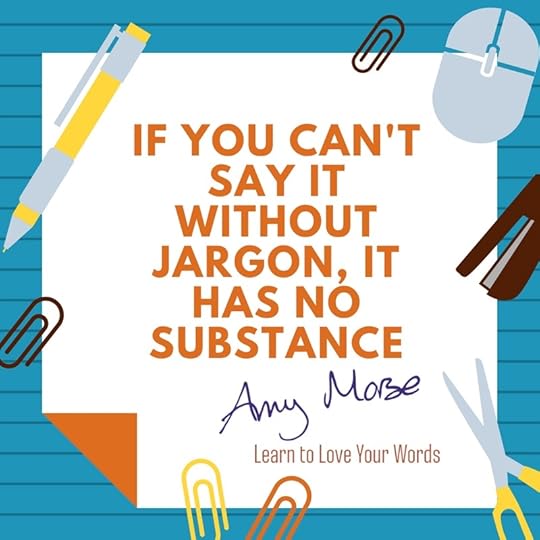
Einstein is quoted as saying, “If you can’t explain it to a six-year-old, you don’t understand it.”

Go Jargon-Free
Writing Jargon-free is not about dumbing down your message, it’s about making it accessible to your audience.
The language, terminology, acronyms and corporate code you use within your organisation doesn’t make sense to people outside of that bubble.
Ordinary humans don’t push on envelopes or let their thoughts out of boxes!
In fact, even within organisations, assuming people know the acronyms and jargon you use is asking for a communications breakdown!
Jargon isn’t just impenetrable for people outside of your organisation or your sector, but it’s also inherently discriminatory against people with learning disabilities.
Last month, I met with Beth Richards at University of Bristol.
Beth is working on a project for the School for Policy Studies, looking at ways to make the film and TV industry accessible for people with learning disabilities.
Like me, one of her pet hates is jargon!
Sharing this fab video she’s created highlighting the problem…
I hate you jargon – by Beth Richards from biggerhouse film on Vimeo.
Jargon Is A Disease
It’s like cancer.
Propagating, circulating and sucking the life out everything it touches.
Jargon-riddled content is soulless.
It makes for boring and inaccessible reading.
It’s dry, dreary and dull.
It’s a stale cookie. A mouldy orange – people avoid consuming it. And those that do, come away feeling disillusioned, de-motivated and empty. And probably a bit sick, too!
Do you really want that to be the enduring feeling you leave your readers with?
However, there are a few small things you can do to eliminate it, or at the very least, quarantine jargon in your writing:
If you must use an acronym, always define it – i.e. SEO (Search Engine Optimisation)
If it’s hard to spell, it’s harder to understand. Is there a simpler word you can use? Thesaurus.com is ideal for word replacements
Is that word ‘trendy’ right now? If it’s trendy it’s not going to last and your content will go out of date very fast. I especially hate ‘UX’ (User Experience) and ‘Blockchain’ (I still don’t actually know what that means but, ridiculously, it’s all over the world of content marketing!)
Ask yourself, would my readers really understand what that means? Is that language they would use?
The real writing happens in the edit, so before you publish that blog post, step away for a while, come back to it with fresh eyes and not only should you be checking for spelling, grammar and sense checking it, but you should also be stripping out that jargon-guff!
Do you struggle to write fresh, interesting blogs?
Are you stuck in a comfort zone of jargon?
Are you worried your blogs are a bit boring?
Do you go into ‘essay mode’ when you write your blogs?
Talk to me about my Check-A-Blog service
For instant updates when I publish a new blog post, Follow me on Bloglovin’
For extra goodies and exclusive new information, join my mailing list HERE.
The post How Jargon Is Killing Your Blog (A-Z of Blogging) appeared first on Amy Morse.
December 27, 2018
A Simple Tool To Come Up With Blog Ideas (A-Z of Blogging)
I have an early school memory – I must have been 5 or 6 – of the teacher blowing my mind with a simple technique to draw a tree.
Overnight, the trees in my pictures went from a blob with a stick coming out of the bottom to something much more detailed; with branches I could perch birds on and hang fruit from.
Many a tree picture adorned my mum’s fridge after that!
Sometimes, all it takes is learning a simple technique to make a step change in the quality of the work you produce.
The Tree Framework

Start with two parallel lines
Then add two diagonal lines to the top
Add a V to make an open-ended Y shape
Add Vs to your Ys
Repeat. Repeat until you’re happy with it
Once you have your trunk and branches you can add leaves, birds, fruit, roots and make it beautiful!
But this simple tree framework is more than a way to occupy a small child!
It’s a great way to plan your ideas, too.
What Shall I Blog About?
This is a Frequently Asked Question for businesses new to blogging, which is why ‘I’ in my A-Z of Blogging Series is for ‘Ideas’.
Coming up with fresh ideas, on demand, regularly, is a daunting prospect.
How Can You Keep It Fresh and Creative?
With this simple tree framework, you can turn a broader concept into a whole series of much more specific and tailored ideas.
That means you can take a ‘theme’ such as ‘Blogging’ for example and break it down into lots of content ideas.

The core theme of your content forms the trunk of the tree.
You can then divide that into many branches, each getting more and more specific, because the more specific a question you answer in your blogs, the more likely it is to come up in a search engine.
It also allows you to add some real, detailed value in the blogs you write; instead of some broad brush lip service content that says nothing new to your readership.
By subdividing your trunk and branches into more and more niche topics, you can give extra value, making you memorable, and building your influence as an expert in your sector – bit by bit -blog by blog – chapter by chapter.
Take your blogs from a stick with a blob on the top, to a quality library of content.
Still stuck for ideas?
Book a FREE 30-minute Inspiration Call with me and I’ll help you rediscover your creative side.
For instant updates when I publish a new blog post, Follow me on Bloglovin’
For extra goodies and exclusive new information, join my mailing list HERE.
The post A Simple Tool To Come Up With Blog Ideas (A-Z of Blogging) appeared first on Amy Morse.
December 13, 2018
The Best Ways to Monetise Your Blog Right Now
How Could You Monetise Your Blog?
So you started a blog to grow your business?
But what if the blog itself could earn you money?
Tips and inspiration from a contributor…
(Quick Read, Contributed Content)

Everyone needs to and likes to make money. We all have bills to pay and have to keep a roof over our heads as well as eat. For some people, what they earn in their job is just not enough and they turn to writing blogs as a way of making some extra cash. Others start a blog because they have a passion for something. Why you start your blog does not really matter but making as much money from it as you can does.
Gain Followers
To be able to make any money from your blog you first of all need to build a following. You can do this by embracing social media and guiding people to it. When the followers have built up you can start to charge for advertising on your pages. This can be done in one of several ways. You could charge private advertisers for space, and as long as their advert does not conflict with your principles, this can be a good way to earn some money.
There is also the option of PPC ads. This stand for ‘pay per click’ and you basically receive a small amount each time a user clicks through to the website being advertised. This might sound like it will not make a great deal, and it will never make you a millionaire. However, you may be surprised how many people will click to find out more information, and they do not have to buy for you to be paid.
Promote Digital Products
You could promote some digital products on your blog, and perhaps learn enough about them to answer questions. Then if someone asks you what is Bitcoin cash?, how do I publish an eBook or what apps and plugins might be useful to them, you may know the answers and if not will at least know where to look. Some digital product developers will pay you a commission for every sale that comes through your site, and if you have built a relationship with them, they may be able to answer the questions you can’t.

Sell Your Own Products
If your blog relates to a new business you have started, you could advertise and sell your own products through it. For instance, if you sell handmade toys, make sure your blog talks about the processes of making them or their history. You could even include a video or two of you actually making them. This is just an example. There is no end to the ways to sell your own products on your blog, and it is an opportunity that should not be missed.
Be Flexible
Because one way of monetising a blog has worked for someone else does not mean it is the right way for you. It depends on your target audience and how you market your blog, and it might be a case of trying them all until you have found the right one. If you are lucky, you could start to get an income stream from all forms of promotion, and then it will be up to you to keep your blog relevant so that the flow continues.
The post The Best Ways to Monetise Your Blog Right Now appeared first on Amy Morse.
December 6, 2018
How Helpful Is Too Helpful On Your Blog? (A-Z of Blogging)

Can You Ever be Too Helpful?
I wrestle with this idea a lot in my business.
Which is why H is for Helpful in my A to Z of Blogging.
On the one hand, my 3 golden rules of blogging are:
Give
Give
Give
On the other, I had frank discussions this week with my fabulous Business Growth Coach, Karen Cook of Plan and Grow, who’s sparkling smile cushioned the blow of recognising my tendency to give too much away for free!
It’s a tough one to reconcile.
I give away knowledge and information on my blogs for the sheer pleasure of just being helpful. It feels good. I want to make an impact, to influence someone, even in a small way. That for me, is a measure of success, knowing I’ve inspired someone or made a difference to them.
However, it’s equally important to know when to stop!
At the end of the day, I’m not a charity. I have bills to pay and a caffeine and stationery habit to feed!

Helpful Vs Nice
I googled ‘too helpful in business’ to see what other bloggers and business influencers had to say on the subject, and curiously, the responses all seemed to interchange with the idea of being ‘too nice’.
Now, being ‘too nice’ is another thing I’ve been accused of in a former life.
I spent a good deal of my career working with long term unemployed people. I refused to slip into the cynical mindset of the Jobcentre advisors – who referred people to our job club – their attitude seemed to be that everyone on benefits was somehow cheating the system. They viewed the people they were supposed to be helping as guilty until proven innocent.
I take people on face value, and 90% of the time they live up to that, and sometimes even surprise me (in a good way).
10% will disappoint you, let you down, let themselves down or generally cause you grief, but if being ‘too nice’ meant that I wasn’t going to let those 10% of A’holes ruin it for everyone else, then I’m guilty as charged!
I do believe in the basic goodness of human nature. Most people do not go around actively trying to upset each other. However, as a society, we seem to be stuck with the idea that you have to be ruthless and cruel to be successful (possibly the reason we elect the leaders we do!) – it’s time to change the story.
Can Nice People Be Successful?
This really depends on how you define ‘success’.
If your only measure of success is financial gain, therefore the motivation to achieve maximum success is greed. It’s fair to say that greedy people are, generally speaking, in the 10% of A’holes! By that measure, you can’t be ‘nice’ and successful.
However, financial gain is only one measure of success (and not necessarily a reliable or honest one!).
Start by asking yourself, what does success mean to me?
Pursue what success means for you and the money will follow, not the other way around!
Truly, genuinely, successful people have more than numbers in a bank account to show for their efforts.
Every day I mix with entrepreneurs who are both successful and nice, and they all have 3 things in common:
1) They Collaborate, They Don’t Compete
The sky is a big place, there’s no need for all the birds to fly in the same part if it.
In business, of course, you need to keep an eye on your competitors, but their success doesn’t mean your failure.
Competitors mean you have to up your game, they keep you honest – you can’t get away with being crap if there is somewhere else people can turn to. But above all else, they prove a demand for what you do and provide an opportunity to learn and collaborate, especially if you are the only one in your business – you can only do so much on your own.
What happens if a client asks you to do a job that’s simply too big for you alone?
What happens if you don’t have capacity or skills to do a job for a client or you’re not available when they need you – who would you be happy to pass them on to?
Businesses don’t operate in isolation; wouldn’t you rather develop a reputation for being helpful and trustworthy than secretive and unapproachable?

Truly successful people cultivate positive relationships all around them and their business.
2) They Are Driven By Passion Not Profit
The businesses that get the worst press are the ones that exploit their staff and suppliers and avoid paying tax.
Passion is infectious. We want to work with people who care about what they do. Because, if they care about what they do, they’ll care about what their customers get out of it.
Everybody is a winner (not just the shareholders!).

Truly successful people care about more than money, they care about their impact on others.
3) They Give Credit Where Credit Is Due
The most demotivating experience anyone can go through is to be made to feel purposeless, unappreciated, worthless, exploited or ignored.
Sometimes, the most uplifting thing we can hear is ‘Thank You’. It’s often all we need to get our mojo back when we’re going through a rough patch.
Truly successful people share in their success and acknowledge and appreciate the people that helped them get there.
Where Do I Draw The ‘Helpful’ Line?
For those who develop a reputation for being helpful, success will follow.
However, don’t give more of your time for free than you are rewarded for.
I use the word ‘rewarded’ instead of ‘paid’ because, as a business, often the rewards are in kind or in good will and that can be banked (as well as the financial reward). As the leader in your business, only you can make this judgement call.
“But if I give everything away, why would people pay for my services?” I hear you ask…
The answer is, don’t give everything away. Give them part of the answer.
In your first interaction you are ‘diagnosing the problem’ – you can offer a taste of the possible solutions, but if you’re solving the problem for them, that has value and you need to be charging for it.
Each blog you write is a small suggestion or part of a solution to a wider problem. And yes, potentially someone determined enough could mine all of your blogs for the answers they need, but that takes time and their time, just like your time, has value.
Helpful Pays
If reading the solution was enough to take action, we’d all be doing it, but in reality, we need more than that to motivate us to change. That’s when all the banked good will and helpfulness will pay off.
Being helpful doesn’t just mean giving away your knowledge, it is also about helping other businesses in your network. Being helpful can be as simple as making an introduction between two of your contacts. It can be sharing, liking or commenting on someone’s blog or social media updates. It can be writing a recommendation on Linked In, reviewing their book on Amazon or as simple as thanking them for helping you.
Blog just to be helpful.
Help others with the knowledge you openly share and let Karma take care of the rest!
For instant updates when I publish a new blog post, Follow me on Bloglovin’
For extra goodies and exclusive new information, join my mailing list HERE.
The post How Helpful Is Too Helpful On Your Blog? (A-Z of Blogging) appeared first on Amy Morse.
November 27, 2018
4 Must Haves For Working Remotely – A Guest Post
When I left corporate life and set up on my own, I vowed I would never work for anyone else ever again.
It’s a process, a journey. Sometimes it hums along happily, other times – to use a well-worn comparison – it can be a roller coaster.
Never in my life have I expended so much energy and resource on my own personal and professional development, and done so on my terms instead of in the pursuit of someone else’s agenda.
Working Remotely Doesn’t Make Me Remote
A word that crops up frequently when I talk about why I do what I do and love about it is, ‘freedom’.
Freedom in so many ways.
Freedom to build my own diary as I choose. To be financially independent and to be physically independent – to work remotely without being inaccessible.
Having the freedom to work remotely, and still work efficiently has it’s own set of challenegs. I’m pleased to host a guest on the blog talking about the the four things you must-have to make a success of remote working.

4 Must-Haves for Working Remotely
Working remotely has plenty of perks, and is often the best lifestyle for bloggers, writers, marketers, and entrepreneurs who don’t need the confines of an office to hold them down. They can create the schedule that is best for them and focus on the work at hand.
Yet the tools you have and the environment you place yourself in can count for a great deal. Good offices are designed to keep you focused and comfortable enough to avoid getting distracted, and you shouldn’t deny yourself the same benefits just because you’re working remotely.
1) A Dedicated and Comfortable Office Space
A dedicated office space will soon become a must-have for you if it isn’t one already. While you can work from your couch for the first week, it simply isn’t as effective as being able to close the door and shut out the world while you write or work.

Make sure it isn’t a room where you will get easily distracted and try to keep everything you might need at hand. Eventually, you might want to invest in a second monitor or other equipment to maximize the performance of the space.
It’s just as important that you have an office space that is comfortable to work in. Can you work well when you’re nearly freezing or trying to constantly fan yourself? While expensive for some, environment control will prevent a loss in productivity, and thus often pay for itself by those standards.
Similarly, try to find an ergonomic setup, and get a good chair. You’re going to be there for quite a few hours each week. Make it a place that doesn’t give you back pain over time.
If you’re a digital nomad, you don’t need to eschew all of these benefits. Simply try to create a similar environment in your area that you can work your best in and bring with you the equipment that will help you the most.
2) A Solid Internet Connection
When you work remotely, your internet connection is effectively your work connection, and just as important as the roof over your head and the water coming into your home. With that in mind, we highly recommend you get the best internet you can in order to better communicate with your clients or co-workers and gather related research materials.

You don’t want to be delayed because of an internet connection. Even if you wait just an extra two seconds for a page to load, those seconds add up (if you open hundreds of pages a day like some writers need to, it’ll be very noticeable). Take some time and search for the best options in your area, you’ll thank yourself later and feel much less frustrated.
3) Set Hours or Some Form of Self-Regulation
People working from home generally do a better job if there is some form of structure to their working lives, whatever form that may take. The reasons are as follows:
People who tend to procrastinate might find themselves rushing before deadlines, taking off too much time and not scheduling themselves properly for a project. This can lead to subpar work and far more stress than you need in your life. Set hours can keep you on track.
Some people might overwork themselves, constantly trying to squeeze one more article, call, or client in. Yet after a certain point productivity will decline so heavily that working extra will just set you back. Time off, which you will often need to set for yourself, is just as important as the time to spend in your office.
People who split up their time too much (and this will vary from person to person) will find that they might not be able to get into a good headspace for work, putting hours on the clock but getting nothing actually done.
Whatever your schedule, try to stick to it and be realistic about the hours you can work.
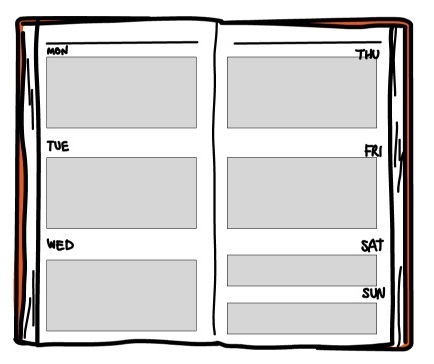
4) Regular Time Away from the Home Office
While working remotely can be considering something like an introvert’s dream, most of us need to experience the world and talk with other people in order to stay our best selves. Working in an office often affords people the opportunity to spend time with co-workers or head out somewhere at the end of the day. Given enough supplies, some remote writers and workers can go a week without leaving their home and not even realize it.
This isn’t particularly healthy, and so you’ll want to make sure your social needs are being met as you enjoy your remote work. Schedule time to spend with family and friends and make an effort to make plans outside of the home, whether with people you know or just by yourself. The change of scenery will do you good.
Conclusion
It’s very likely that you will have additional needs on top of those listed above, but we recommend going after the essentials first and making sure that your remote working environment and lifestyle is an efficient and comfortable one. These items will only help in the long run and make your career more sustainable for you in more ways than one.
Are you a remote worker that has additional needs on top of those listed above? What must-haves would you list? How do you address what was listed above? We would love to hear your thoughts, so please leave a comment below.
Byline: Kevin Conner is the founder and CEO of Vast Bridges, a customer acquisition and lead generation company in the home services arena. His strengths lie in creating a strategic vision and leading a team to successfully execute that vision.
The post 4 Must Haves For Working Remotely – A Guest Post appeared first on Amy Morse.
November 22, 2018
How Google Friendly Is Your Blog? (A-Z of Blogging)
 G is for Google on my A to Z of Blogging
G is for Google on my A to Z of Blogging
The Googlebot is a hungry beast. It scuttles around the internet 3.7 million times a minute – it’s one speedy critter!
It voraciously searches for content – the food of the web – and brings it back to its master (the human that just typed in a search query).
Eager to please, it looks for the most relevant and up to date content that meets its master’s request.
How does it decide which content is more appetising than another?
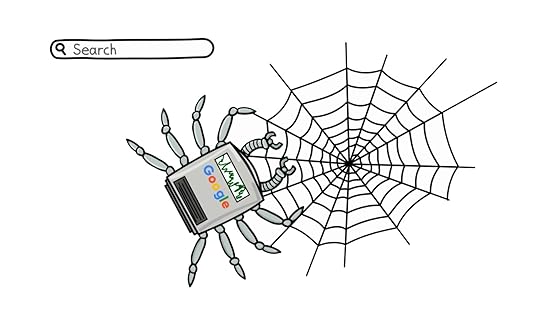
How To Make Friends
Having a blog on your website brings 97% more traffic – because it gives people a reason to visit and Google something new to search for.
A Google-friendly website is often the first reason people have for blogging, but there is so much more to it than that.
There are a few on-screen tweaks and tools you can use in your blogs to give them a fighting chance of being appetising to Googlebot, to be found in organic (non-ad) searches.
The art of being Google-friendly is known as ‘SEO’ (Search Engine Optimisation).
But it isn’t some dark art. There are things you can do yourself, without technical know-how, to help Googlebot sniff out your content.

Here’s a quick list of things you can do yourself that doesn’t involve lots of clever coding knowledge:
Written descriptions on images
Link to other parts of your website (internal links)
Social Media links on your website and individual content
Link to other websites (external links)
Include keywords and phrases (things people type into their search)
Clear headlines
Clear subheadings
Something A Bit More Technical?
I’m not expert, but I am aware of a few extra things you can do.
If you’re feeling ready to try out some more technical solutions to being of optimum nutritional value to Googlebot, here are some other useful links and tools:
Google Tools
It’s in Google’s best interests to make it as easy as possible for ordinary humans to create content that can be found easily. If you typed things into Google and never got accurate search results, you’d stop using it, right?
Therefore, Google is always adding new ingredients to its content discovery recipe – and they’re usually free!
Neil Patel has a useful list of 25 Free Google Tools, but here’s a short list of the ones most relevant to make your content Google-friendly
Google Analytics
A free statistical tool that gerates details information about actvioty on your website. You can track and resport on the traffic coming to your site and use that infora,tion to improve the way people find your content
Google Search Console
Measures your website itself. Its performance. It shows you any errors and fixes to make sure that your website is working as well as it can.
Google AdWords
Designed to test which words and phrases people are typing in to find the content on your website, you can sign up for an account, but no one says you HAVE to pay for advertising.
Use it to discover which words and phrases are most popular to find content similar to yours and use that to guide what you blog about.
Go straight ot the keyword planner HERE
My Google Places
Ever wondered how those little red markers get onto Google Maps? That’s Google Places.
Make sure you tell Google that your business, and your website exists. Fill in the details for your business and you will get a postcard in the post a few days later. You then login, enter the code on the postcard and Google will verify your business and give you one of those little red blobs.
Google Insights
This tool allows you to search for keywords to see their trends over time so you can see what search terms are growing and declining in popularity. It’s aimed at developers.
Further Reading?
The MOZ Blog is a great source of information.
It’s aimed more at web developers than bloggers, so if it’s all a bit overwhelming, stay in touch.
I can Keep It Super Simple for you.
For instant updates when I publish a new blog post, Follow me on Bloglovin’
For extra goodies and exclusive new information, join my mailing list HERE.
The post How Google Friendly Is Your Blog? (A-Z of Blogging) appeared first on Amy Morse.
November 13, 2018
Facts Vs Opinion (A-Z of Blogging)
F is for Facts in the A-Z Blogging
Opinions or Facts?
It’s been years since I watched “the news”.
The word ‘news’ needs to be in quotation marks because in this age of 24-hour ‘news’ it’s amazing how tenuous some of the topics are that pass as ‘news’!
How corporate or politically motivated ‘opinions’ are presented as ‘facts’…
You just need to watch a story for a few minutes – with a questioning mind – to realise that most of it is hearsay and speculation, with a few ‘facts’ but mostly reaction, based on opinion.
Comedian and satirist Dave Gorman sums it up so well in this clip…
“I’m not going to do your job for you, I want you to tell me what happened!”
My morning routine, like millions of others, used to be eating my breakfast in front of “the news”. I’d tell myself it was to ‘see what was happening in the world’.
By the time I’d drunk my tea, all those fresh feelings of sleep and a warm shower were tainted with an oily mist of human misery. I was heavier, despairing, starting my day with nothing but depressing images of the crappy things people do to each other. It’s enough to make you lose all faith in humanity.
I hate ‘The News’!
You get a snap shot of one or two items dubbed ‘newsworthy’. The story is then sensationalised. Dramatic music, emotive language, swaddled in layers of political agenda. Fear sells papers and satellite TV subscriptions.
The ‘news’ is curtain-twitching for mass consumption.
You only ever see the absolute worst of humanity on ‘the news’. It’s amplified and repeated, so you can see how extremist views quickly take hold. You hear people sharing recycled opinions in everyday conversations and emotive headlines verbatim like they came up with it themselves.
Then, one day I was so sick of starting my day on a negative, that I stopped. I detoxified my life of TV news and all newspapers and I’ve never looked back!
I still see ‘what’s going on in the world’ – just with a glance at Twitter – where you see all the points of view on whatever people are talking about that day. The entire spectrum – from human misery to National Cat Day.
If you really want to know what’s happening in the world, reach outside your bubble, turn off the TV, put your phone away and look outside your door.
Pay attention to the people around you. Get involved in your local community and you’ll quickly see the amazing and inspiring things ordinary people do, every day. That never make it onto “the news”!
Be The Change
Gandhi is famously quoted as saying, “Be the change you wish to see in the world”.
If you don’t like something, don’t be part of it. Find a different path…

Be The Real News
Fight back against the tide of politically motivated propaganda and negative deluge, change the story.
Switch off and tune into something more positive.
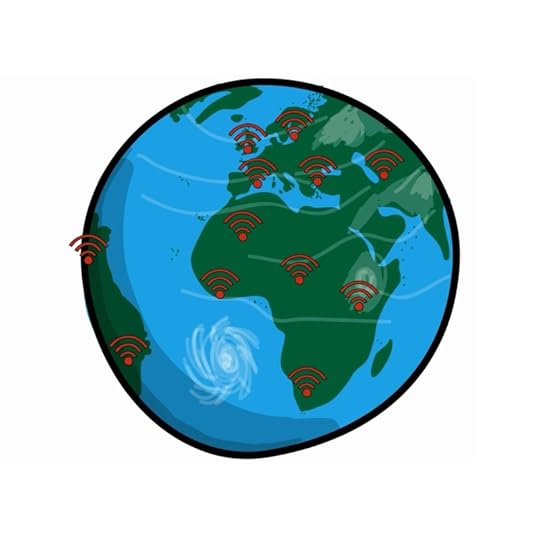
Your Blog, Your Story
I appreciate the irony of writing an opinion piece about the way ‘facts’ are presented in corporate media!
You can think of your business blog as your own online magazine.
You choose the facts, you form and share the opinions, you are the editor in charge of your own publication.
Strike a balance between facts and story, and never confuse ‘facts’ with ‘opinion’ (what are you, Fox News?).
Share relevant facts, but back them up with well sourced and referenced research
Form your own opinion. Critically analyse your own take on a topic
Be clear, in your own mind, and for the sake of your readers – what is your opinion and what is factually based
Keep it positive – Give us a choice, we all need some good news in our lives!
For instant updates when I publish a new blog post, Follow me on Bloglovin’
For extra goodies and exclusive new information, join my mailing list HERE.
The post Facts Vs Opinion (A-Z of Blogging) appeared first on Amy Morse.
November 7, 2018
Bringing Your Expertise To Your Blogs (A-Z of Blogging)
E is for Expertise in my A to Z of Blogging…
Expertise is Action
This Summer, I was at a garden party for my sister’s birthday (she’s Artist Chloe Birnie).
We sat on makeshift chairs around a blazing firepit in her garden in Devon, surrounded by her friends and family, sipping Roger the neighbour’s homebrew.

Our brother, Lewis, is a professional musician. He plays multiple instruments in several bands (including Yama Warashi). He makes a living gigging and performing at festivals.
Lewis bought his guitar out, and as if he were a circus monkey, we demanded he play this song, or that song – whatever we felt like singing along to. He dutifully obliged, for a while at least.
For all intents and purposes, you can call him an ‘expert’ musician. But he’s not Eric Clapton, or Brian May, or Slash, or Mark Knopfler…
He could play anything we threw at him, as long as he’d heard it, and we were mesmerized.
Then one of my sister’s friends came outside with her 13-year-old son, Adam. He was proudly carrying his own guitar.

Adam sat next to Lewis, his music book on his skinny little lap, eyes passing over the notes as he tentatively strummed along. Lewis encouraged him. Slowed to his stilted pace. It was enough for 13-year-old Adam to feel more confident. His mum encouraged him to play ‘Wonderwall’ – he’d been practising it and knew it confidently. Of course, everyone in the circle knew the words to that one!
Adam had us in thrall, confidently strumming out the notes as we all wailed along.
Although Lewis had been amenable and entertaining, it was Adam who got the standing ovation.
Compared to me, Adam is an expert – I don’t play any instruments, the music ability gene skipped me in the family!
I was so impressed with his skill with a guitar. I can’t even I do air guitar properly, my husband mocks me for holding it backwards!
Whatever you do, there will always be people who will have different levels of expertise and experience.
Bested By A 13-Year-Old
Some won’t have as much as you. I have less guitar playing skills than a 13-year-old boy who knows one song. And some will have more than you. Lewis picked up his first guitar at 13, and 20 years later he earns a living with it (and other instruments)!
Lesson Learned
I learned early on in my training career that you don’t have to have all the answers on a topic, you just need to know more than the people you serve.
All they want from you is to move one or two steps forwards. As long as you are one or two steps ahead of them, you are more of an expert in that topic than they are.

Even if you only know one small part of a topic and have limited experience.
If the person you serve has no experience in it, you are more of an expert than them.
You may not be THE world’s expert in whatever you do, but you are definitely AN expert in it!
Besides, if you were THE world expert, the chances are, the people you want to serve couldn’t afford you anyway and would probably find you too intimidating to approach!
You as an Expert
One thing you can, categorically, say is that you are THE EXPERT in YOUR business!
Whenever you get those nagging doubts, whenever you compare your progress and perceived success to that other person in your sector, remind yourself that they don’t know it in the way you know it! They’ll have acquired their knowledge from a different route to you, so they will have a different take on it.
Expertise is Relative
If you do come across an aspect of a topic you don’t know enough about, that’s merely an opportunity to work on your own personal development and learn about it.
If someone asks you something you don’t have an answer for, be honest, tell them you don’t know but you will find out. It’s an opportunity for you to learn more so you can help in other ways.
Sharing your expertise in a topic, no matter how limited that may be, is a journey. It’s a process.
You will always be learning new skills and developing what you do and how it serves others.
Just because you don’t know it all now, does not mean you can’t talk about it.
Be Proud of Your Achievements
Give yourself a break, recognise your own achievements and be proud to share your expertise, no matter how limited it may seem to you.
For instant updates when I publish a new blog post, Follow me on Bloglovin’
For extra goodies and exclusive new information, join my mailing list HERE.
The post Bringing Your Expertise To Your Blogs (A-Z of Blogging) appeared first on Amy Morse.


